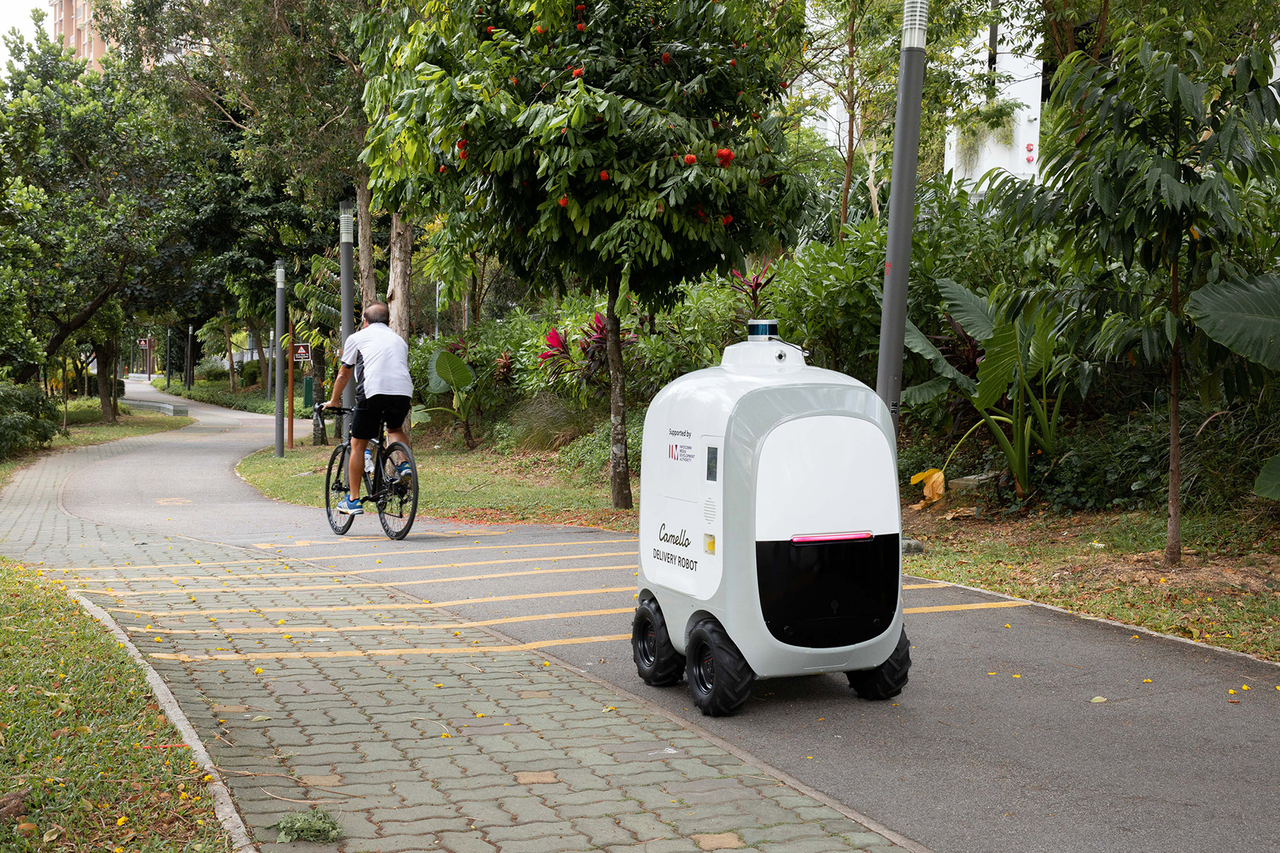Over 50 driverless vehicles approved for trials on S'pore's roads and public paths in last 5 years
Sign up now: Get ST's newsletters delivered to your inbox

An autonomous mobile robot on trial delivering parcels and groceries from neighbourhood mall Oasis Terraces to residential blocks in Punggol Woodcress.
PHOTO: INFOCOMM MEDIA DEVELOPMENT AUTHORITY
SINGAPORE - More than 40 driverless vehicles have been tested and approved to ply Singapore's roads since an autonomous vehicle (AV) test centre was opened in 2017.
According to statistics that The Straits Times has seen, these include driverless taxis, shuttles, buses and road sweepers, certified by the Centre of Excellence for Testing and Research of Autonomous Vehicles-Nanyang Technology University (Cetran).
Another 10 were also approved by Cetran to be put on public paths, fulfilling functions such as last-mile delivery of food and equipment, as well as surveillance.
The 2ha autonomous vehicle (AV) test centre was set up in 2017 by the Government and Nanyang Technology University (NTU) to put all self-driving vehicles through their paces and certify them safe and competent enough to be trialled on roads.
The Straits Times understands that more trials, including buses, are already being planned.
At the opening of the Urban Redevelopment Authority's (URA's) AV-themed exhibition on Thursday (Jan 13), URA and companies showed how Singapore was preparing for an AV transport future that may be within reach in the next few decades.
Industry players and the authorities are working together to redesign pick-up and drop-off points to make them more AV-ready.
Plans to make Punggol, Tengah and Jurong Innovation District AV-ready by the early 2020s are also proceeding on schedule, although agencies involved did not commit to a fixed year, saying only that driverless trials are being planned.
The more than 50 vehicles put on Singapore's roads and footpaths over the years include the world's first on-demand AV taxi trial by NuTonomy and Grab in one-north business district in 2016.
On-demand 10- and 26-seater bus services by ST Engineering, SBS Transit and SMRT were also opened to commuters at Science Park II and Jurong Island last year.
Mr Vincent Wong, head of research and advanced engineering of Continental Automotive Singapore, said one of the biggest challenges right now is how to get people comfortable interacting with the machines.
His company has been trialling smaller AVs to deliver parcels and groceries in Punggol and Jurong. He said these should gain faster acceptance since they are not ferrying passengers.
"Because these are smaller and move on sidewalks, they will be faster to deploy and be adopted by the public. Autonomous mobile robots are likely to come before passenger AVs," he said.


